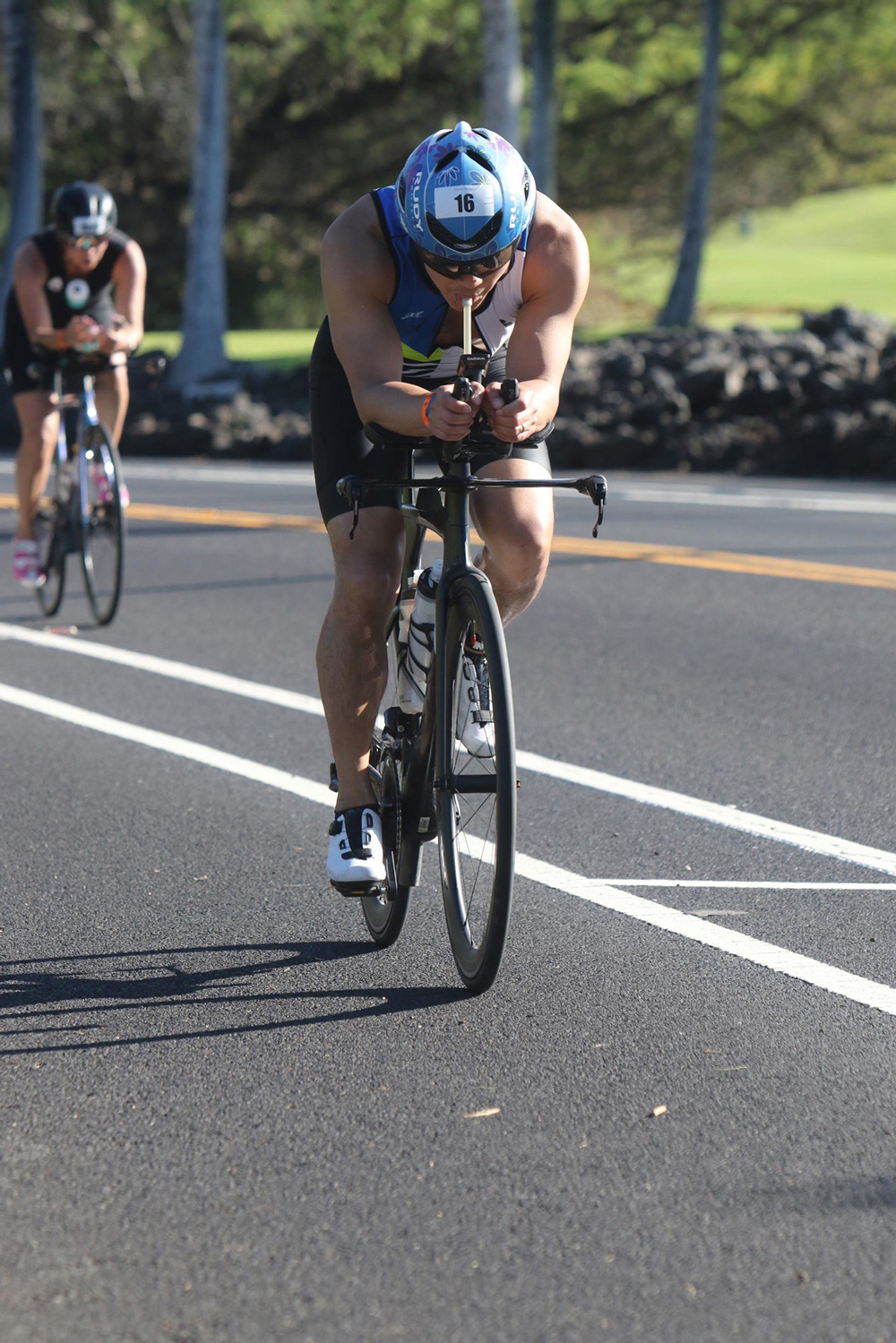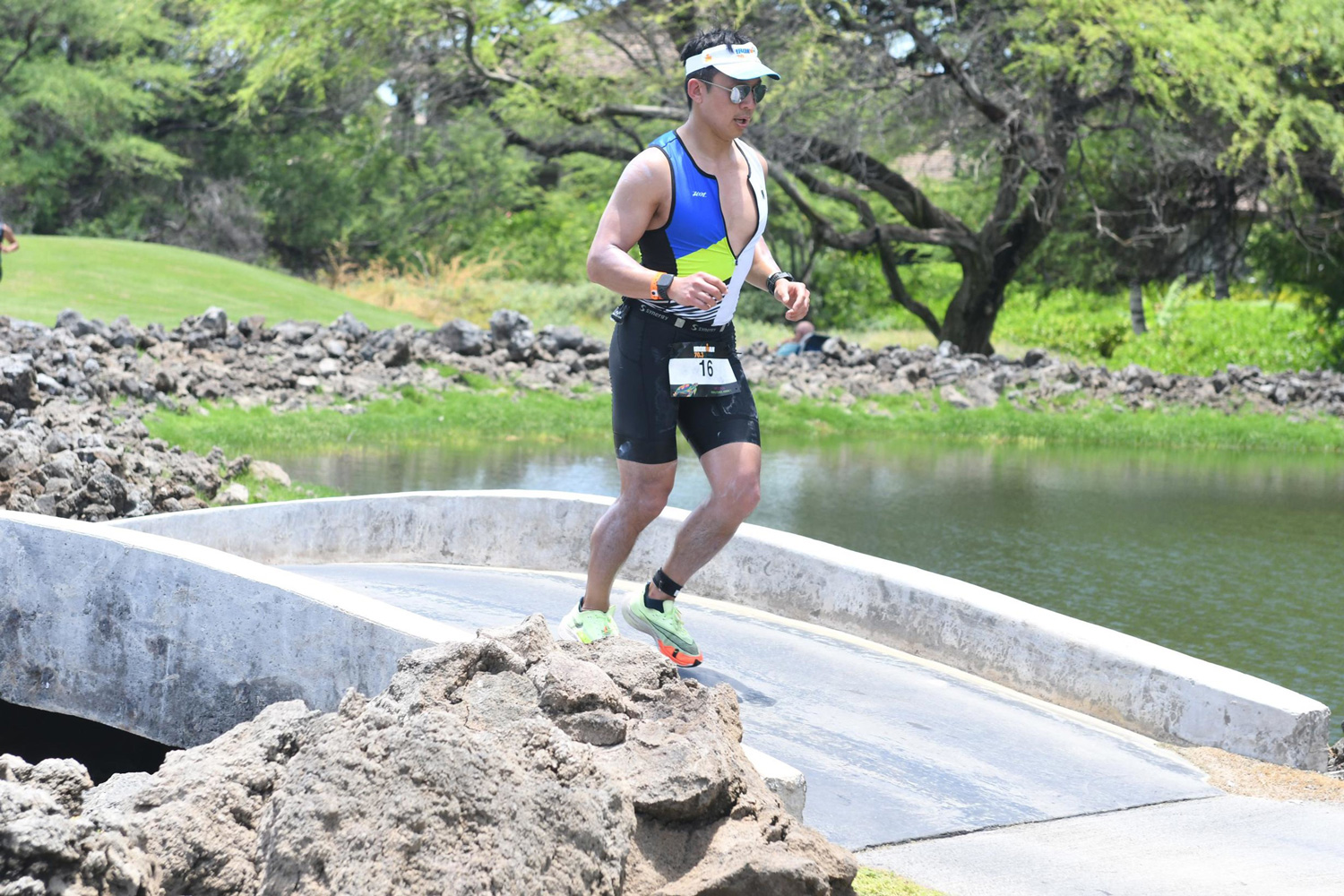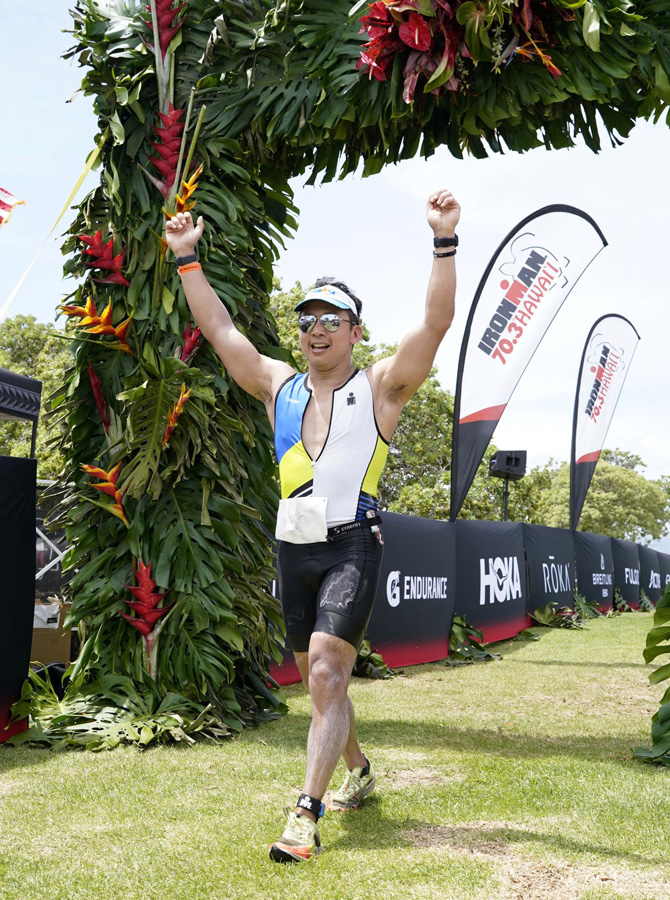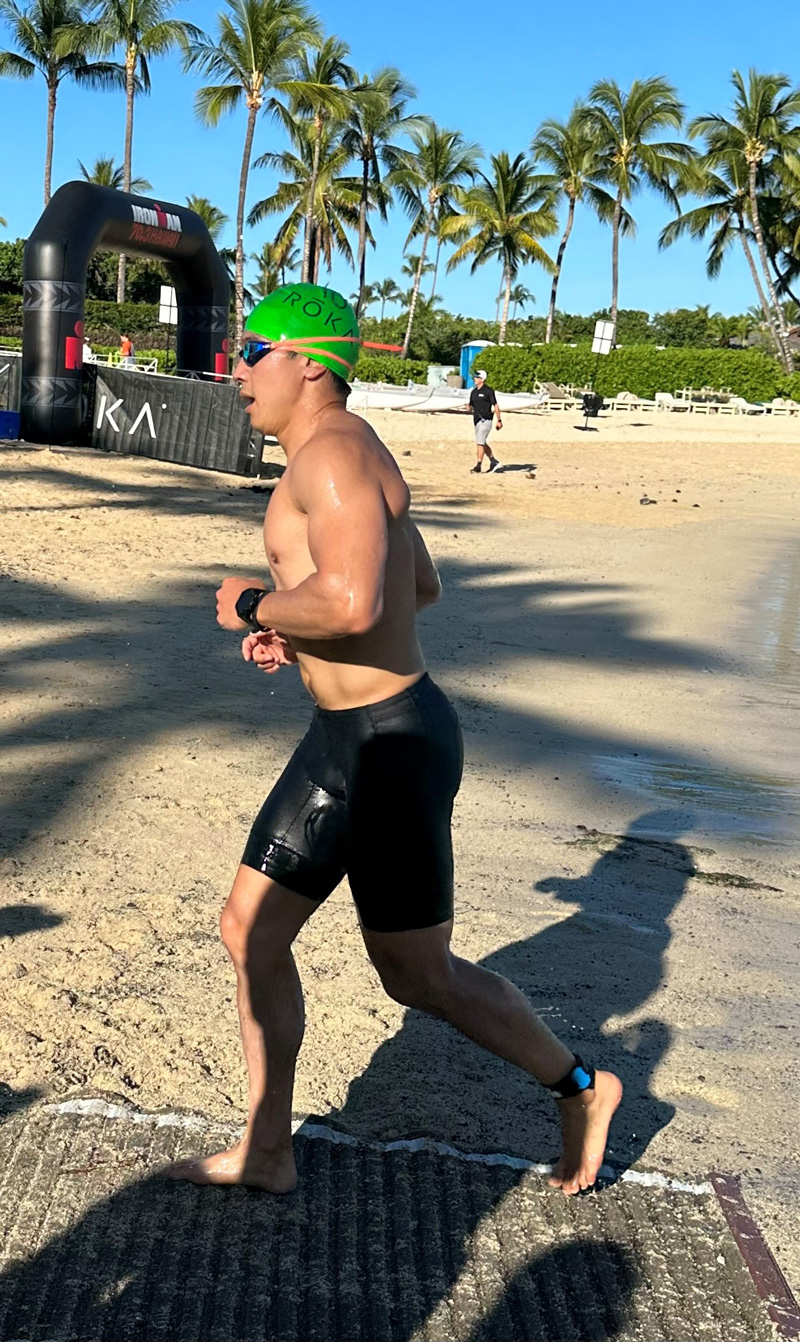Bucket List No More
In June, McBride Spine Specialist, Dr. Winston Fong, traveled to Waimea, Hawaii, to compete in Ironman 70.3. We asked Dr. Fong to tell us more about his experience completing this awe-inspiring feat. Read his interview below.




- How did you get involved in Ironman 70.3?
I’ve done triathlons before in the past, but this particular Ironman competition is one that I’d been wanting to do for quite some time. It was on my bucket list. Originally, I set out to compete in 2020, but COVID hit. Then, I experienced adhesive capsulitis and my wife was put on bedrest during a pregnancy, so I targeted 2023 before I got too much older.
- What was your main inspiration surrounding Ironman competition?
Honestly, my main inspiration was just trying to push my body and mind to see what I was capable of. As you get older, it gets harder and harder to do these things, so I wanted to make sure I got it done before it got too hard to do one. That being said, you realize you can do anything as long as you’re willing to put in the time and the effort.
- What is the breakdown for each segment of Ironman 70.3?
The total distance is 70.3 miles, but the competition breakdown is 1.2 miles swimming, 56 miles biking and 13.1 miles running – in that order. Essentially, the final segment of the competition is equivalent to running a Half-Marathon.
- Did you compete in Ironman specialties growing up or as an adult?
Not really. Ironman involves endurance-based events. Growing up, I was more of a swimmer, ran 100-meter event in track, played football and wrestled. Typically, in Ironman competition, cycling is my strongest event, but the day of the competition crosswinds were 30mph in the mountains – incredibly brutal and it was my hardest event in the end.
- What was your training regimen?
Due to my busy schedule, I did not have a specific regimen, so I would try to train 30 minutes to an hour during the week. On the weekends, I would do longer training sessions to get the ‘longer’ distance training completed. I trained when I could, but some days were harder than others to get it done, however, I always tried to do it whenever I could.
- Did you train with other people along the way?
Because of my unique schedule working in healthcare, I normally had to train alone. So, that meant 5am training sessions before heading to clinic or surgery, Monday thru Friday. On the weekends, if I could find someone to train with me for 3-4 hours, I was all about that.
- How did you feel once the competition was over? Physically and emotionally?
Obviously, that race is (pretty) physically demanding. Emotionally, seeing my entire family at the finish line was awesome! Crossing the finish line was an amazing sense of accomplishment. All the time and effort you put into training culminates in crossing that finish line. Ironman does a great job celebrating you, too. The first 30 minutes after the race, you start thinking about “Why did I do this?” The next day you are thinking “What race will I do next?”
- Do you wish to participate in future Ironman competition?
Ironman 70.3 was such a fun competition and I enjoyed it, but the downside is all the training that is involved. I think I would like to do some more in the future. I just have to figure out ‘where’ I would like to go to compete and make a vacation out of it.
- What comes to mind, when you reflect on the Ironman experience?
A handful of things. My wife was extremely supportive. I don’t think I could have done it without her support. I wanted to show my kids that you can do ANYTHING as long as you’re willing to put in the work and you’ve got stop thinking about it and just do it!